The house at 180 Coleman Street was built in 1835 for prominent Bellevillian Billa Flint (1805-1894). He was a prosperous lumberman and merchant who served as Mayor of Belleville, Warden of Hastings, and in the Provincial Legislature. He was appointed as a Senator in 1867.
There used to be a building next to it that was home to the Corbin Lock Factory.
Timeline
July 18, 2024 – Owner of nearby condo project says funds are not available due to COVID-19 and rising interest rates, Property Standards Committee extends property cleanup deadlines
180 Coleman Street is owned by Integrated Real Estate Investment Platform Inc. represented by Mohammad Shahid, which also owns the Harbour View Condos at 2 Dundas Street West (Coleman and Dundas) that rent for $2,875 and the property managed by Councillor Barb Enright-Miller’s company Royal Property Management.
THAT the timeline for complying with property cleanup and maintenance items that do not require heritage approval be extended to August 5, 2024.
THAT the timeline for complying with the remaining items including building repairs and graffiti removal that do require heritage approval be extended until October 18, 2024.
The Property Standards Officer addressed the Committee indicating that a complaint had been received and she went out to investigate the complaint and said the property was not compliant so a work order was written up. She said to date no effort has been made for clean up by the owner.
In response to the Committees inquiry the Officer said that the owner had sought an extension in timeline to complete the work but she could not recall the specific amount of time that was requested. The Officer said that the property was supposed to be cleaned up by June 17th, 2024 according to the order.
The owner spoke on behalf of the appeal. The owner said that since covid and rising interest rates the funds are not available for the required clean up. The owner indicated that he has a lot of projects on the go and financially things are tight. The owner said that he thought that there should be some relief by the City, that perhaps the City could come out and clean up the property. The owner said that fixing some of the items such as the windows is very costly. He said that he is trying to sell some assets to obtain some money but needs time to do so.
The Committee indicated that their concerns was having the site cleaned up ie. grass cut, weeds pulled and tidying up the building, potentially boarding up windows for safety reason until he can afford to replace the windows.
Staff confirmed to the Committee that there is a heritage designation and a heritage easement on the property and that the Heritage Committee makes recommendations regarding heritage properties that are ultimately approved or denied by Council. Staff confirmed that the owner brought a window quote forward to Council that was denied as a certain type of windows was required to maintain the architectural integrity of the building. Staff said that any structural work would have to go through the Heritage Committee such as removing the graffiti to ensure best practices were followed.
The Committee said their immediate concern was the general clean up of the property.
May 30, 2023 – Property Standards Committee requires maintenance action by June 17, 2024
According to Bylaw 12910 the building located at 180 Coleman St is a designated heritage property of historic or architectural interest pursuant to Part IV of the Ontario Heritage Act, 1980 registered as Instrument No. 443508 on September 27, 1990. All repairs done to the building must be completed in accordance to the Heritage Easement Agreement registered on title of this property and receive written approval from the City of Belleville prior to commencing. A copy of the designating bylaw has been attached.
Cut and maintain all grass/weeds at the above captioned property so as to be kept at a reasonable length.
Remove all rubbish, garbage, brush and other debris from the above captioned property. Including but not limited to brush/ dirt piles, loose litter, garbage and debris.
Repair exterior walls so as to be free from loose, rotted or broken materials. Broken/damaged bricks must be repaired/replaced.
Restore the exterior wall to as near as possible to the original appearance before the graffiti was applied.
Replace all broken glass in windows. All window and door openings must be fitted with exterior grade windows.
February 7, 2023 – Property listed for rent for $2,800/month
Prime location beside Provincial Courthouse. Building known as Billa Flint circa 1867. This unique building would be an excellent location for a Tim Horton’s or Starbucks, or a professional office space. Building has an 830 s/f ground floor area plus an additional 815 s/f on the second floor. Landlord is prepared to install all new windows, entrance door, a new 200 amp service, rough-in for sewer and water, and a new HVAC unit. The Billa Flint building will be attached by an open concourse to the future multi-residential/commercial complex to be known as Belleville Harbor District. There will be an additional 175 residential units proposed on the adjacent property on Coleman Street. Tenant to build out their own internal space.
Zoning Description: C2-18
Ekort Realty
September 25, 2020 – Squatters inhabit the house
September 27, 1990 – Billa Flint house given Heritage designation
Born in 1805 in Brockville, Billa Flint had no formal education and started work when he was eleven in the family store. He married Phoebe Clement in 1827 and in 1829 opened a general store on Front street in Belleville. From his general store he branched out as a miller and a lumberman employing hundreds throughout Hastings County. He established Bridgewater (Actinolite) and Flinton as mill centres and named the village of Bancroft after his mother-in-law whose maiden name was Ella Bancroft.
Flint had an urgent need to build this impressive brick home in 1835, as his widowed mother-in-law and three of her daughters and her son had come from Brockville the previous year to live with him and his wife Phoebe.
Throughout his life, Flint contributed significantly to the life and growth of the community. While pushing his work with astonishing energy, he held a great variety of public offices. He was the first president (Mayor) of the Board of Police in 1836, then Mayor of Belleville in 1866. In 1858 he was elected Reeve of the Township of Elzevir and served in that capacity for 21 years. In 1865 he helped to organize the Belleville Board of Trade, renamed the Belleville Chamber of Commerce in 1919. He was called to the Canadian Senate in 1867.
Billa Flint died while in Ottawa on June 15, 1894.
It was not discovered that the house at 180 Coleman Street was actually the Billa Flint home until 1981. The building had become part of what, for years, was the International Hardware building. But, at a closer look, the Flint home does not resemble the rest of the complex. The home was built in 1835.
The interior of this simple and good looking townhouse has been divided up in different ways at different times. Although the building itself dated back to 1835 there is a modern staircase, going from back to front, and some attractive panelling in the front office which looks to date from about 1940, as does the classical revival style canopy over the front door. The front doorway opening was, at one time, wide enough for side lights but the sides have been narrowed with modern brick.
Apart from some of the baseboard at the upstairs front, the only vestiges of original work include the delicately moulded trim of the three upper windows at the front and the smaller one at the upper rear. It is presumed that the sash of these is original too, and it has been more or less copied in the various small-pane windows added in the north wall which, from the absence of any sign of window or door arches, appears to have been originally blank. Seen from the outside, the upstairs windows in the north wall are very fair copies of their counterparts at front and back.
The walls of this building appear to be triple brick, plastered directly on the inside. The roof, viewed from across the street or from the back premises, shows four thick places in the parapet ends, like the bases of chimneys, but no trace of flues were visible in the rooms. Of these four bases, perhaps some were at one time actual chimneys or ornamental fakes or ventilators. These formed an essential part of the skyline of the house.
This home exemplifies architecture common in the early nineteenth century, and is one of Belleville’s earliest homes.
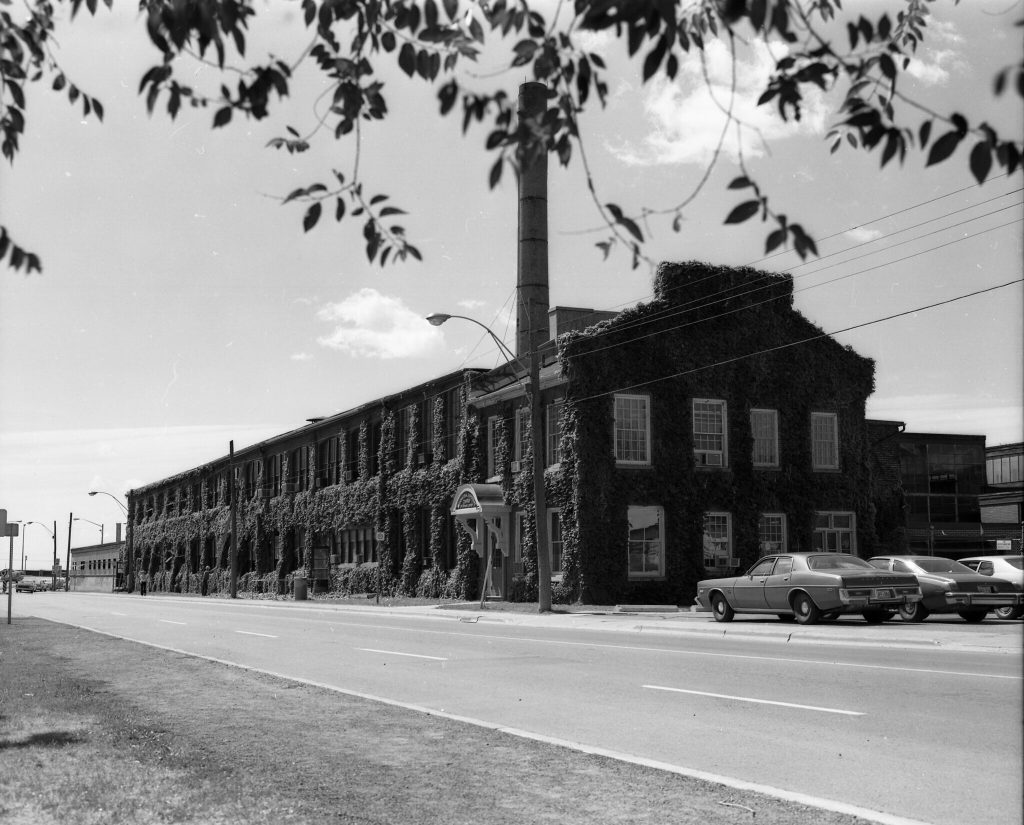
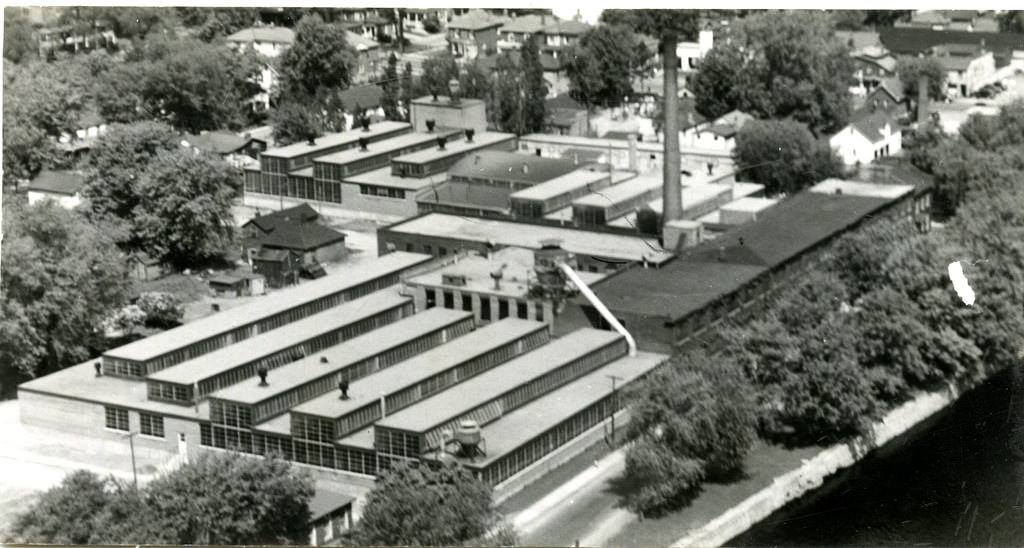
Who was Billa Flint?
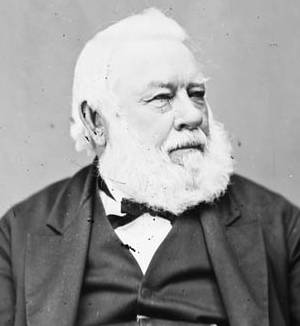
Billa Flint (February 9, 1805 – June 15, 1894) was a businessman and political figure in Ontario. He was a Liberal member of the Senate of Canada from 1867 to 1894.
He was born in Elizabethtown (later Brockville) in Upper Canada and dropped out of school after six weeks to work for his father as a clerk. In 1829, unhappy with the sale of liquor at his father’s hotel, he moved to Belleville and set up his own business there. In the same year, he also founded a temperance society there. In 1836, he was appointed magistrate and also became president of the Board of Police. He was elected to the Legislative Assembly of the Province of Canada in 1847 for Hastings and, in 1854, for Hastings South. In 1863, he was elected to the Legislative Council for Trent division and served until Confederation when he was appointed to the Senate. In 1866, he served as mayor of Belleville. He served over 20 years on the council for Hastings County and was warden for the county in 1873.
His business had expanded from the sale of goods into the harvesting and sale of timber and the operation of warehouses and wharfs for storing and transporting goods. He also established towns along the Skootamatta River, with mills and factories, at Troy (later Actinolite) and Flint’s Mills (now Flinton). He purchased mills at York Mills, later named Bancroft after his wife’s mother’s maiden name. Her name was Elizabeth Ann Clement (née Bancroft). He also helped promote steamships on Lake Ontario and railway links in the region. Although forceful and opinionated, he also donated land for schools and churches.
He died at Ottawa in 1894, while serving as member of the Senate.
Flint wrote a series of articles about the early days of Belleville which were published in the newspapers of the time.
Billa Flint – Wikipedia

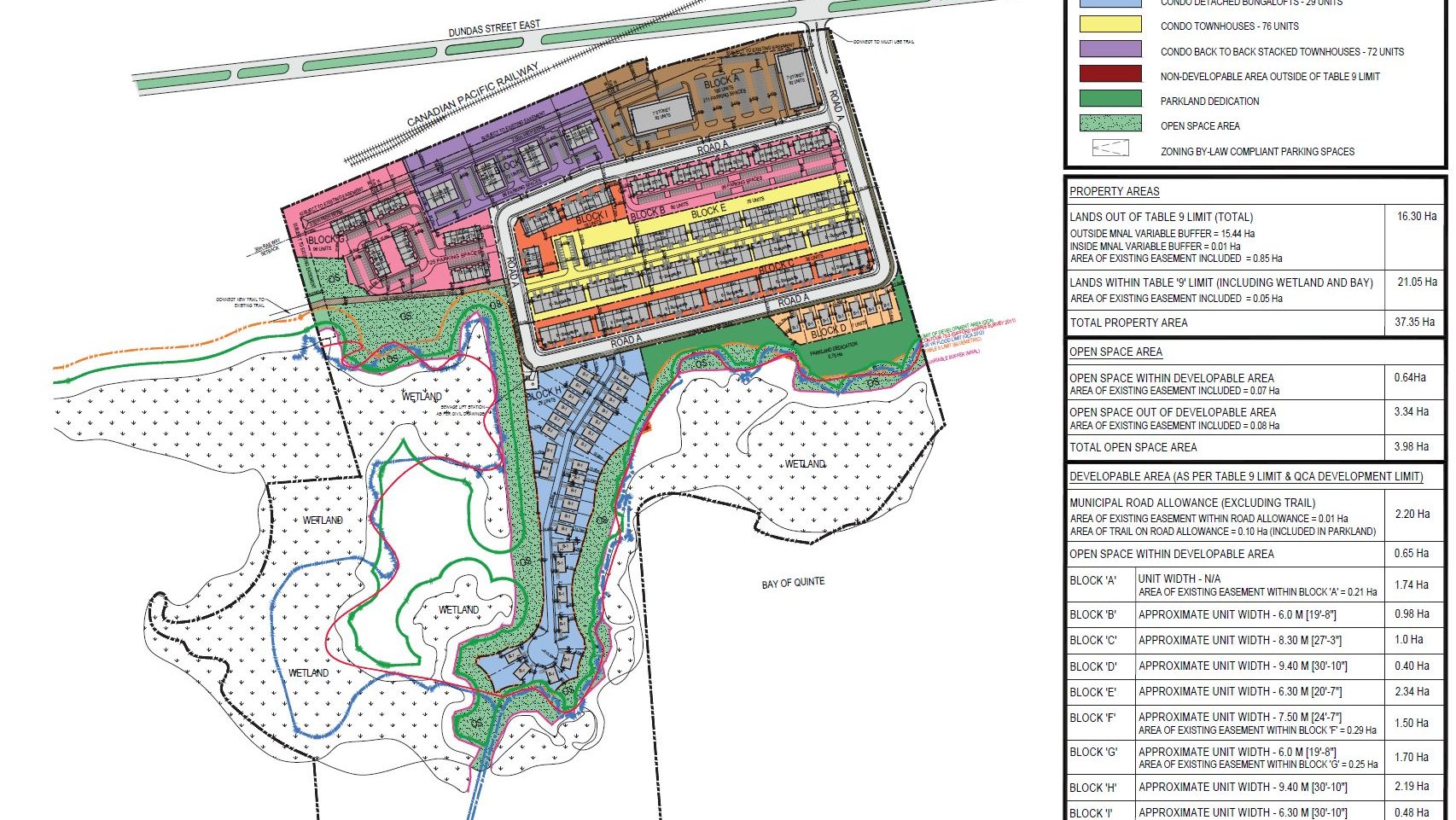

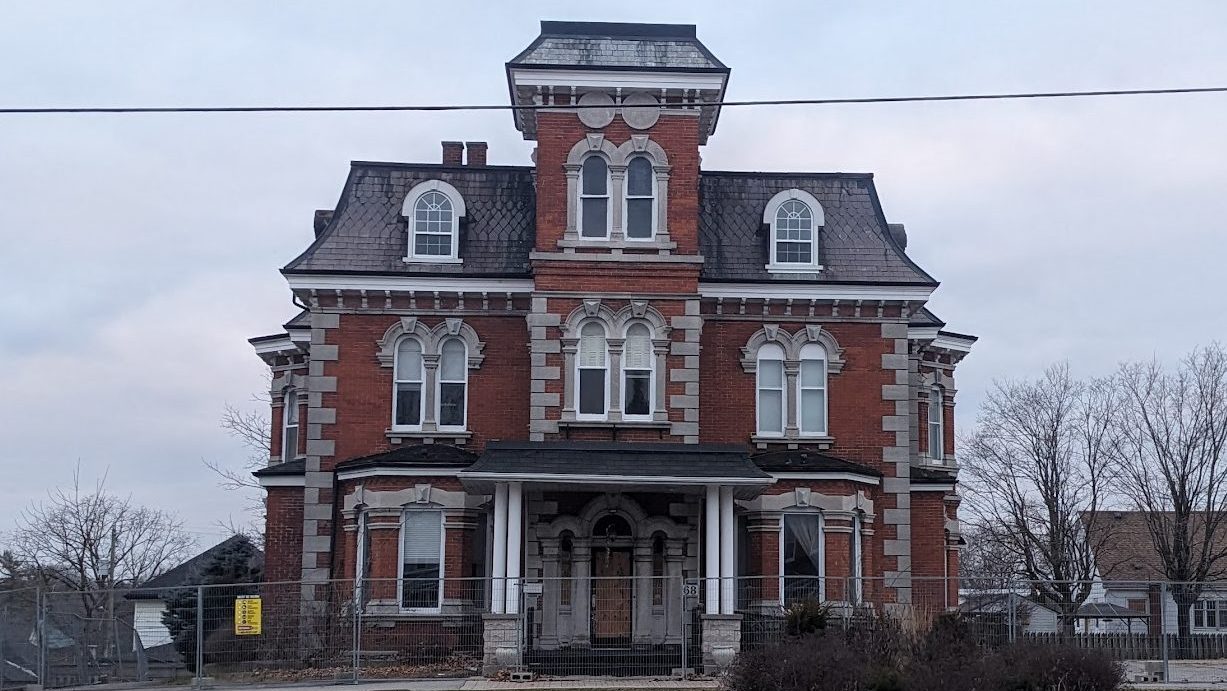
Leave a comment
All comments are reviewed prior to appearing on the site.
Rules: